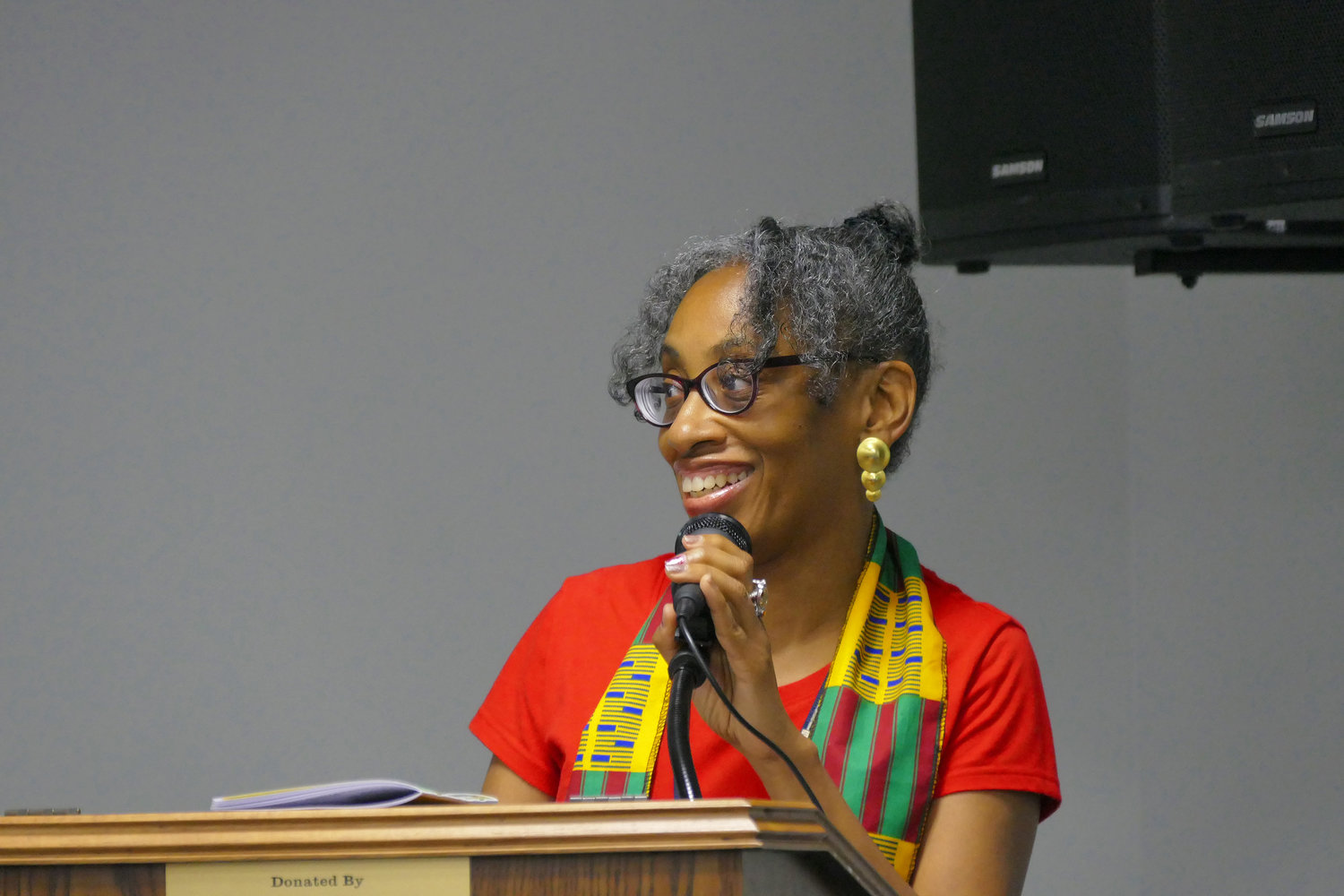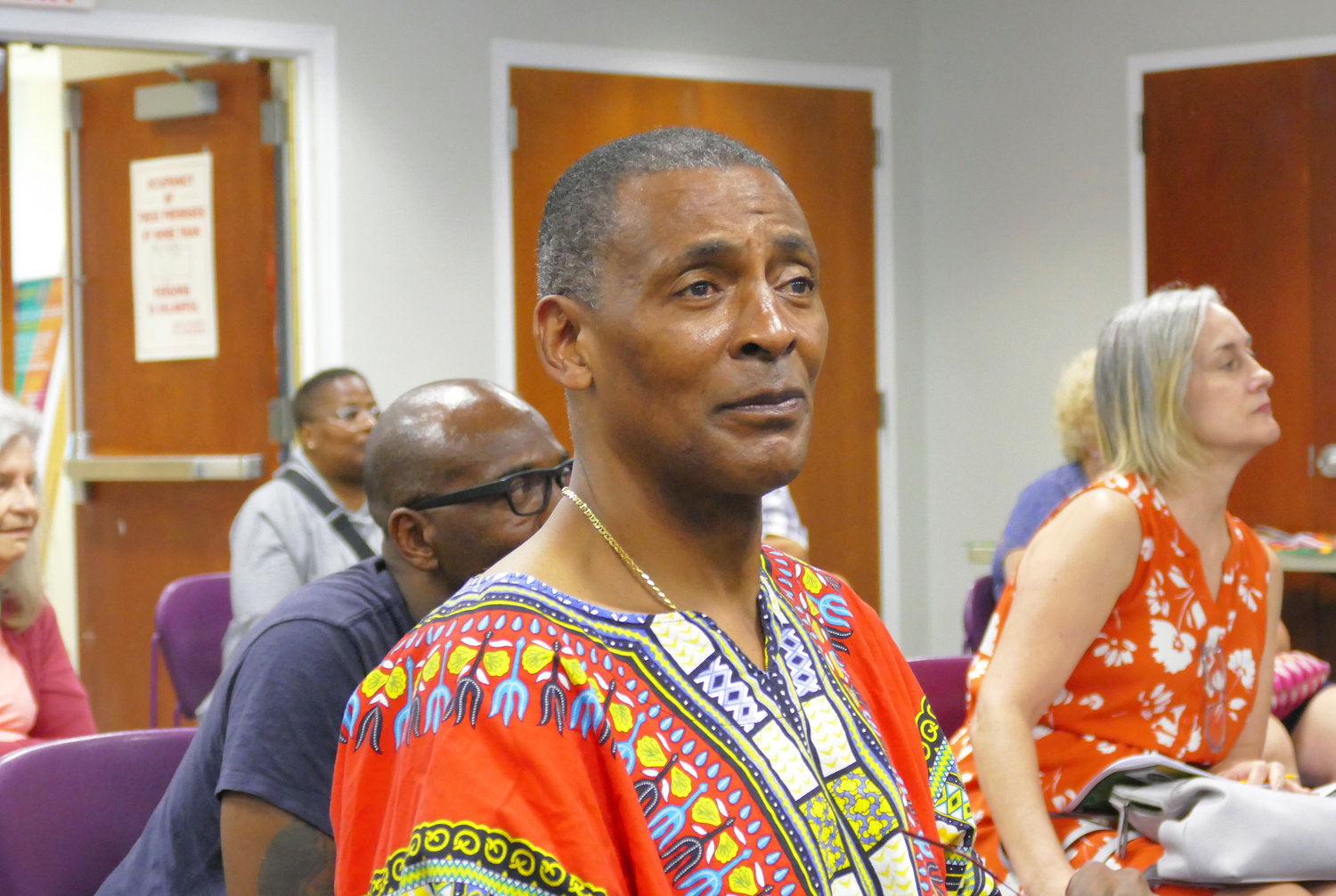Moore leads Juneteenth ‘teach-in’ event
Anissa Moore, a leader in Long Beach’s Black community and a former president of the City Council, posed a question last week about Juneteenth: “What should freedom look like in 2020?”
Moore, who is now a deputy Nassau County executive, led a “teach-in” on June 9 at the Long Beach Public Library about the holiday that commemorates the day in June 1865 when slaves in Galveston, Texas, were in-formed by federal troops that the Civil War had ended and that they were free — two years after President Abraham Lincoln signed the Emancipation Proclamation.
“Our theme is family reunion, educate, celebrate and heal,” Moore told the audience. “And that is our focus this year, that we want to come together as a community so that we can focus on becoming one Nassau.”
The event sparked lively responses.
Some at the teach-in suggested building generational wealth through home ownership. One participant stressed the importance of “making sure children learn to read by the second grade. Education, education, education.” Another focused on the importance of respecting elders.
Moore’s presentation included a short film and lecture on the history of Tulsa, Oklahoma’s so-called Black Wall Street, and life for African-Americans following emancipation. She discussed their migration, and how many used advertisements in newspapers to find distant family members. The presentation also touched on the Black family, and the importance of grandparents.
The teach-in was attended by residents and public officials, including members of the Long Beach Juneteenth Committee.
Juneteenth, also known as Emancipation Day, is considered the oldest African-American holiday, and June 19 was designated a federal holiday last year by President Biden.
The teach-in was part of a series of Juneteenth-related events this month in Long Beach. Participants were given an informational booklet that included poetry, book recommendations and information about the holiday, and the event included a lively question-and-answer session.
“Rodeos, fishing, barbecuing and baseball are just a few of the typical Juneteenth activities you may witness today,” the literature read. “Juneteenth celebrates freedom and achievement, while also encouraging continuous self-development, self-determination and collective work and responsibility.”
For years it was also common for African-Americans to make a pilgrimage to Galveston. “Juneteenth continued to be highly revered in Texas decades later,” the teach-in handouts read, “with many former enslaved and descendants making an annual pilgrimage back to Galveston on this date.”
Another topic of discussion was African-American genealogy, and the Hempstead-based African-Atlantic Genealogical Society, a nonprofit created in 1994 by Joysetta and Julius Pearse. Julius Pearse researched his own family history, and discovered in the process that many people of color did not know that was possible. TAAGS became affiliated with the African American Museum in 1998.
Audrey L. Hadden, a member of the Juneteenth Committee, was the last to speak at the teach-in. “Let us cultivate our authentic selves,” Hadden said, “by defining ourselves, naming ourselves, creating for ourselves, speaking for ourselves, and accomplishing the goals that we have set for ourselves through the principle of self-determination.”
She concluded with the words of the abolitionist and Underground Railroad legend Harriet Tubman: “Always remember, you have within you the strength, the patience and the passion to reach for the stars to change the world.”

 47.0°,
Mostly Cloudy
47.0°,
Mostly Cloudy 







